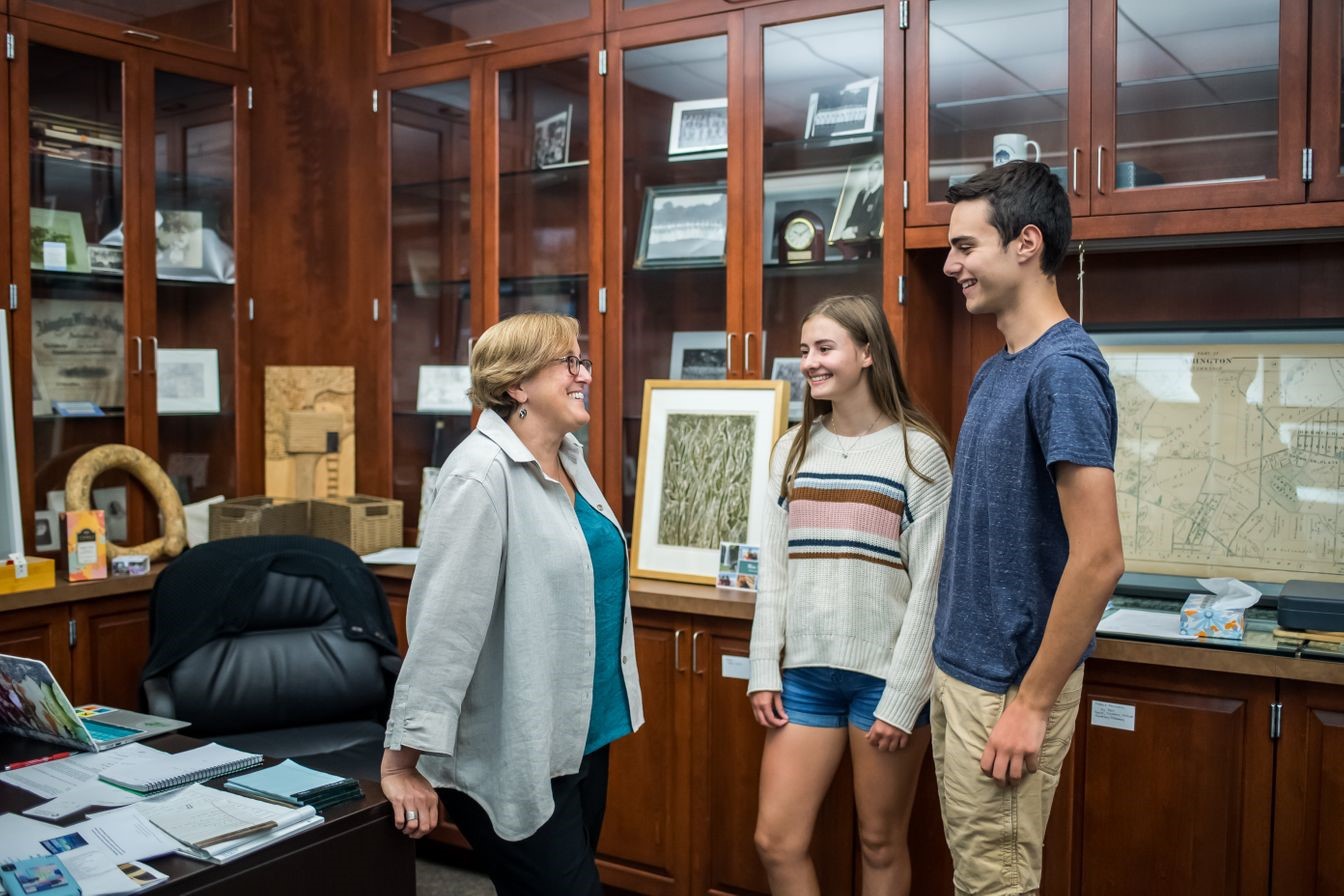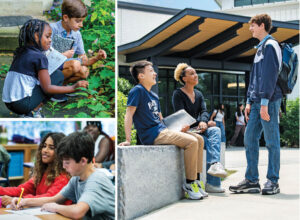Here at Abington Friends School, we believe experience-based learning is more effective for imparting knowledge and useful to students in the real world. While reading textbooks and filling out scantrons may be the norm, we’re not afraid to experiment with curriculum if it means providing more opportunities to our students. We have a dedicated Center for Experiential Learning, which provides guidance, mentorship, and opportunities for students of all ages.
Many schools emphasize multiple-choice testing as a way to stay competitive and earn funding. The result may be teaching to a test, rather than allowing students to do a deep dive into their interests and develop skills for future careers, and more importantly the skills for living a life of passion and purpose.
What is Experiential Learning?
There are many different ways to pursue education-based inexperience, but they all share a core philosophy: Students learn best from experience. As a result, teachers and administrators strive to create opportunities for kids to participate in real-life activities such as service or work. This way, students get to see theoretical concepts in action.
Additionally, students have the chance to explore the learning process by experimenting and practicing critical thinking skills. This makes it easier for children to transfer what they’ve learned in different contexts.
So what are some of the types of experiential education?
Service-Learning
Service-learning emphasis is on serving the community rather than garnering career experience. Like an internship, students have the opportunity to participate in a new environment and work with individuals who have experience in the field. However, the service-learning experience is meant to instill values as much as it is meant to provide real-life experience.
While emphasized values may vary by environment, most service-learning programs teach generosity, compassion, justice, and other positive social principles. Individuals who participate in these programs learn how to apply these values to their work and realize them in tangible ways. At AFS, it isn’t just about doing the act of service; it is about incorporating the work into a bigger picture of self-reflection, change, and living for a mission.
Small Cohort Learning
Though not as common as they once were, cooperative education programs still have a lot to offer. These programs focus on providing experiences out in different fields of work and mentoring from seasoned professionals. Individuals join small groups that focus on a particular area such as medicine, law, business, or cooking and farming. These small cohorts attend class and focused field trips.
Stepping into different work environments allows for students to put their lessons into action while having the benefit of expert mentoring.
Internships and Advanced Programs
Internships are common in institutions of higher learning, though they may also be available for high school students. Individuals are placed in a working environment on a temporary basis and may or may not be paid for their time.
The idea is to bridge the gap between a strictly academic setting and a real workplace environment. Interns get to see knowledge in action while taking on their own responsibilities. As a result, interns receive both educational and career experience to inform their future endeavors.
Nowadays, there are many advanced, competitive programs offered over winter, spring, and summer breaks that are similar in philosophy to internships. AFS has helped students get into competitive summer programs at universities such as Cornell and Temple.
What are the Benefits?
So, what are the experiential learning benefits your child can gain from participating in one of the aforementioned programs? First and foremost, experiential education allows participants to grow emotionally and socially as well as academically, fully equipping them for the complexities of their next step in life.
Students also learn how to discover for themselves; rather than relying on only provided material, they develop the investigative skills to find answers to questions.
Though having a solid knowledge base is valuable in adult life, there are certain skills that textbooks can’t impart and scantrons can’t test for:
• Communication
• Conflict resolution
• Networking
• Negotiation
• Active listening
• Diplomacy
• Creative thinking
• Giving constructive criticism
Many interpersonal skills require nonverbal cues that can only be practiced through observation and practice; while these situations can be simulated; students have more to gain by confronting these challenges in real, albeit low-risk scenarios. Experience-based learning provides these opportunities with the guidance of mentors and instructors.
Encourages Cooperation
In addition to providing students with the necessary tools to work with others, experiential education encourages them to seek help and support from peers. Program participants discover through their work what it means to cooperate and how to take on leadership roles.
For example, delegation is a common approach to teamwork but is only effective when used with the knowledge of team members’ strengths and weaknesses. By working toward a common goal, students learn how to rely on others and contribute to others.
Provides a Variety of Opportunities for Practice and Experimentation
Having early opportunities for real-world experience helps students understand what’s required for a career. As individuals take on new roles and practice skills, they also learn more about themselves — their strengths, weaknesses, and preferences, for example. Because they’re in a controlled environment, students can experiment within their roles by practicing different approaches to problems. They can also decide early if a particular field isn’t for them, allowing them to pursue other paths.
Creates an Avenue to Safely Make Mistakes
We learn a great deal from mistakes, but many learning environments discourage making them. For example, a wrong answer on a multiple-choice test means points lost and a lower grade. This sends a message that mistakes are detrimental and should be avoided at all costs.
In contrast, mistakes are accepted as part of the learning process in experiential education. Programs foster an environment where students feel safe making mistakes, as they know they can recover, adjust, and try again.
Encourages Reflection
To truly learn from mistakes, individuals need to reflect on the cause and make changes to achieve a different result in the future. Experiential education teaches students to examine their actions and their thought processes, and even their emotional responses. This internal reflection prepares students for the workplace and helps them make major life choices, improve their personal relationships, and address their emotional needs.
Self-awareness is a characteristic that offers value throughout their lives, and experience-based learning helps students develop their own.
Increases Creativity
There are many ways to approach a problem using prior knowledge, personal skills, and teamwork. Often, the solution to a complex issue arises by coming at it from a different angle. Experiential education encourages this mindset and teaches students to be open to new ideas and perspectives. An open mind is a fertile ground for creativity, which is useful in any industry as well as personal challenges.
Additionally, experience-based learning can actually accelerate retention. Students with access to hands-on lessons are more likely to retain knowledge and are more engaged with the learning process. Individuals who understand how they learn are more likely to feel comfortable investigating future questions. Watch our Experiential Learning Presentation from Fall 2020.
Are you looking for a school that teaches more, provides experiences, and encourages a base of Quaker values? If you believe that a supportive community and nurturing environment is the best way for children to learn, then you share an educational philosophy with Abington Friends School.
We believe that every aspect of a child’s growth should be encouraged, including emotional and spiritual facets. For more information or to enroll your child, give us a call at 215-886-4350 or contact us online.

